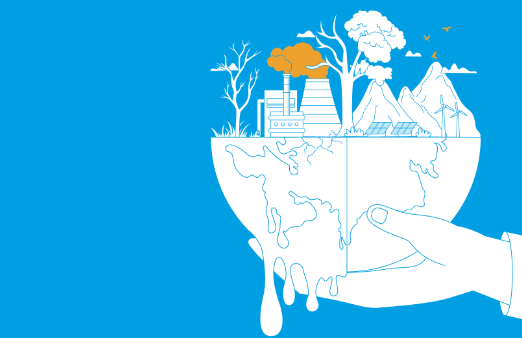Acting against climate change was the theme of UNESCO’s last Campus, with a regional focus on Asia.

On this occasion, six schools were gathered to analyze the impact of climate change in the region, and to discover solutions that enable us to take action: The Aga Khan Academy from Hyderabad in India, SMP Negeri 1 from Ciasem Subang, Indonesia; The Alpha School at Hanoi in Vietnam; The Green School Bangalore at Bangalore, India; The SMAN 3 School, in Bandung, Indonesia; Shikharapur Community School at Kathmandu, Nepal. Schools from Vietnam, Lebanon, Bhutan and the Philippines also assisted at this Campus, via chat.
To put the main topic of this session into context: Kristine Tovmasyan, Programme Specialist and team lead of the Natural Sciences sectors at the UNESCO Suva Field Office (Fiji).
From 2014 to 2022 she was leading the Natural Sciences unit of the UNESCO Office in Almaty, Kazakhstan, covering the Central Asia region. Her activities are focused on promoting sustainable development and peace through enhanced scientific knowledge and international cooperation on natural resources management, disaster risk reduction, and resilience to climate change. During the Campus, she explained the way climate change affects regions differently: “Natural hazards in mountainous regions, will show with the melting of permafrost whereas, for the student living in coastal areas the warming can be seen faster”.
“Young people are our future leaders”
Kristine TovmasyanProgramme Specialist and team lead of the Natural Sciences sectors at the UNESCO Suva Field Office (Fiji)
In the second part, we addressed the local impact to preserve our planet. How can we have a positive impact on our communities? To do that we welcomed Vimlendu Jha, Founder and Executive Director of Swechha, a leading environment NGO in India. Profiled as one of the top 25 youth leaders of the world by the International Youth Foundation, Vimlendu has been also selected to be part of the Be the Change programme by CNN International, which followed his work for over a year. His ability to network with youth organizations across the country and his keen understanding of the issues facing young people makes him regularly sought-after by advice and experience. Vimlendu is also a successful green entrepreneur, having set up Green the Map, Swechha’s fair-trade initiative that produces innovative products from waste material.
In Southeast Asia, climate change is often linked to pollution, the region concentrates most of the most polluted cities in the world, especially India. Vimlendu Jha raised awareness not on the lack of awareness on killing our planet, but on the lack of action “Everybody knows that plastic is bad for instance” We have to act on different levels: urgent and long term. For the students, he tried to underline that the education system needs to stop the culture of success as perpetuating consumption.
“There is no planet B, nor person B, we cannot be expecting leaders to act for everything, we have to be the leaders and the change to build our future”
Vimlendu JhaFounder and Executive Director of Swechha
To conclude, the dialogue was on citizen action, with Sissota Pol, Development Manager of TONTOTON, an organization based in Cambodia that innovates in the fight against plastic pollution. Sissota is French-Cambodian and he returned to live in Cambodia, in 2011. After various experiences in different industries (engineering, construction, and logistics), he decided to join TONTOTON last year, because he believes that the activity and mission of the organization have a higher sense of purpose, bettering the environment of Cambodia and the livelihood of Cambodian people. He explained his project to reuse plastics with the students, explaining that fighting against climate change, in Asia and elsewhere, is mainly about “raising awareness and changing habits”.
This event was realized with the support of TECH4ALL and the collaboration of 6C-Conseil.
Article Credit: unesco